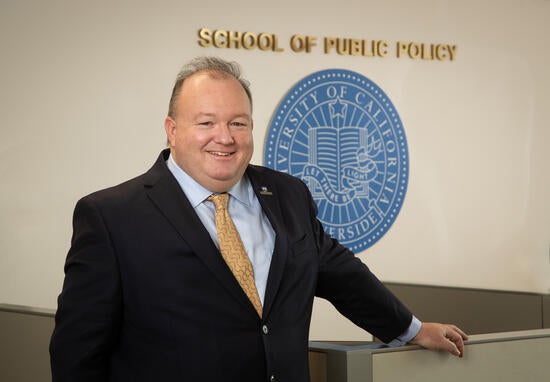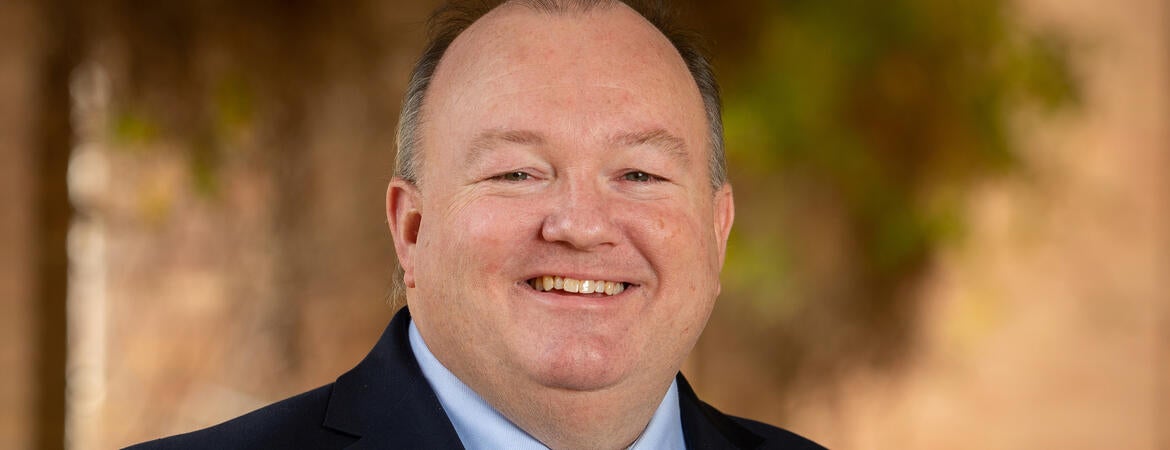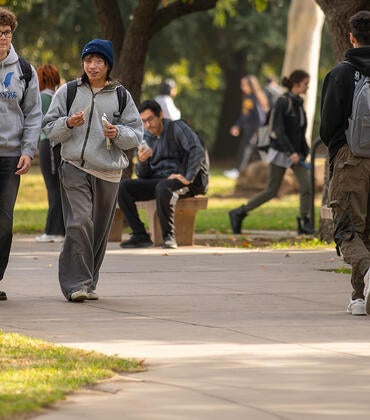
Less than a year ago, Mark Long, then a University of Washington associate dean and professor, served on a committee formed to evaluate undergraduate studies at UCR’s School of Public Policy.
The school more than just made the grade. It became Long’s destiny. He was so impressed that he successfully applied to be the school’s second dean, taking the helm at the beginning of the winter quarter.
“I got to really interrogate the program, mostly on the undergraduate side,” Long said of his work as an external member of the evaluation committee. “What I found was that the school was really highly functioning, that people liked each other here, that they worked well together, and that they had good collegial relationships across the campus.”
Long’s goals for the UCR school are to grow student enrollment and enhance the school’s reputation, taking advantage of a talented faculty whose research already ranks high for the quality of scholarship and the quantity of citations of their work in academic journals.
“I'm not focused on rankings, per se, but I am focused on getting the story out because it's already there,” he said. “We have the faculty to do it.”
Programmatically, Long said he will draw heavily on the faculty, staff, students, alumni, and the community to do strategic planning over the next nine months.
“I'm going to take my lead from them to see where they want to go in terms of emphasis,” he said.
Long comes to UCR from the University of Washington in Seattle, where he was an associate dean at the Evans School of Public Policy and Governance and an economics professor. Before joining the UW in 2004, he was a faculty member at George Washington University in Washington D.C. He has a Ph.D. and two master’s degrees from the University of Michigan, and a bachelor’s degree in Studio Art from DePauw University in Indiana. He grew up in Cincinnati, Ohio.
Long brings to UCR years of research on public policies that “help disadvantaged youth move into better-paying jobs and better careers and better lives,” he said. He has further examined impacts of legislation and court cases that have banned affirmative action programs and what universities and colleges can do to foster the social and economic mobility of disadvantaged students.
“We have to ensure that we are providing a good program, that we're providing excellent education that is transformative, that generate skills, that we're connecting students to jobs,” he said. “Because if you don't have the connections, the degree won't necessarily help you.”
Very few public policy schools offer undergraduate degrees. UCR is an exception. Its undergraduate program has about 350 students, which is larger than most public policy undergraduate programs across the country. Most of the students are the first generation in their families to go to college.
Public policy is a newer field in academia, with many of the nation’s major universities establishing programs or schools in the 1960s. Public policy institutions tap expertise from the areas of economics, politics, sociology, business, environmental science, among other topics. Graduates pursue careers in government, politics, non-profit organizations, and jobs in business that involve governmental relations.
“Schools of public policy are inherently interdisciplinary,” he said. “That's their strength. They talk to each other and develop solutions to problems, having understandings from a lot of different perspectives,” he said. “That said, it creates a challenge as an institution, for how do you review each other? How do you communicate with each other? How do you have seminars, when you're all coming from different disciplinary perspectives?”
But for public policy graduates, the job opportunities are many. All government policies begin with advocacy, followed by legislation, adoption, implementation, and evaluation in cycles that are constantly repeated, Long said.
“On the job side, you can be working in any of those kinds of parts,” he said. “You can be someone who is doing program evaluation; you can be someone who is doing advocacy for policy change; you can be somebody who's working in the legislative office; you can be someone who is implementing a policy and being a frontline worker manager.
“We are training students to understand all of that.”




